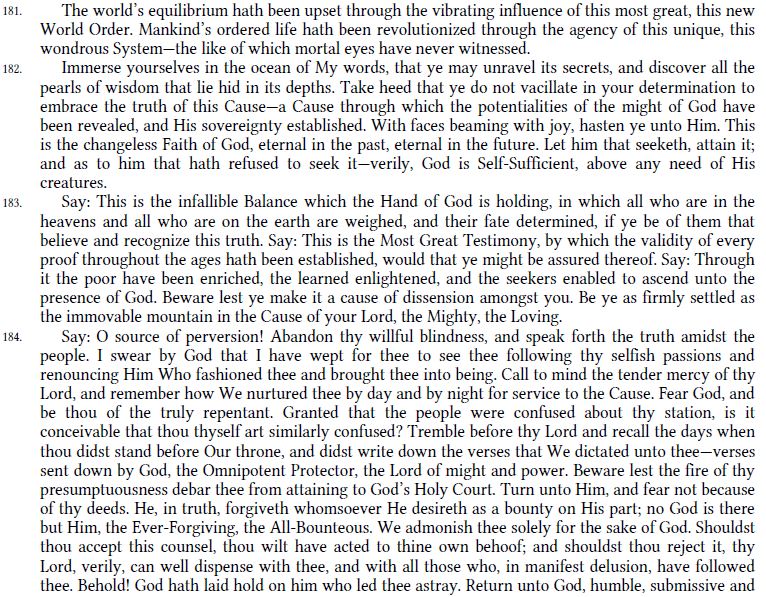When it comes to Islam , it is the only thing that I've ever been like this with (as I wasn't with Christianity for instance, nor Thelema, nor Buddhism or other things I explored along the way in my journey), is that even reading on basic things like Salaah can make me tear up because of how much heart and truth there is in it.
Reading a Jewish or Christian prayer for instance, just doesn't bring me any kind of feeling compared to it. Islamic prayer is a heavily powerful thing.
Unlike the other two Abrahamic religions (Judaism and Christianity) I feel a strong feeling of "this means something", that when I read the Qur'an, when I recite in Salaah, when I read about Prophet Muhammad (A.S.), the Ahl al-Bayt, the Companions (Sahaba), I feel this immense awe and love, as well as an immensely piercing confrontation of day-to-day consensus reality.
Islam is conceived as so dangerous and confronting for a reason and it's not terrorism or "barbaric" punishments, it is it's ontological nature as a religion beyond all the other religions and the transformative power it has.
Islam liberates the individual to God, it isn't "liberal" it is Haqq (Truth/Reality), it brings the Worshiper to direct awareness of him/herself and to God. It is a sword that separates the wheat from the chaff, it is itself a spiritual quality control in a sense.
It is universal and archetypal, it is by it's very nature anti-tribal and cross-continental. It is immensely powerful by it's words alone.
No religion has what Islam has.
Other religions have good and true aspects but nothing as unified-ly profoundly principle as what Islam has.
With Islam unlike Judaism and Christianity there is this sense also of spiritual determination, integrity, etc. Unlike Judaism and Christianity, there is not a sense of self-hatred and embarrassment to being deeply spiritual/religious/pious. Jews and Christians in their root mentalities feel they need to apologize (even extreme fundamentalist Evangelical Christians!). Whereas in Islam, if you truly accept and believe it, then you defacto cannot hold such a view. Islam is something one is humbly unashamed about, even in light of social stigma in the west. It is something so hard to articulate.
Far more than Christianity (even though that Jesus calls it out in various places), Islam (and God in the Qur'an) strongly criticizes hypocrisy. We are to cleanse/purify ourselves of our hypocrisy and truly embrace the truth and justice we are called to and what we profess to believe. This means that being at odds with the world around us, being Nomads in a sense (as I mentioned once) is part of the deal.
Anyway with the experience of Islam, it's messages, it's practices, it just overwhelmingly brings me joy when I embrace it. When I got through tough times I need to not let go of that spark, I need to keep letting it grow.
I see all the Islamphobia, hatred, controversy towards Islam in the media and internet as a cosmic thing. Islam won the hearts of the hostile Meccan Pagans and spread all throughout the middle east within several decades of Prophet Muhammad's (A.S.) death, and in the 20th/21st century is the same thing happening again. The general westerner is too stupid to realize how this works. Islam is so much more criticized in intensely hostile ways and extremely unfairly for a reason, and it is not something that leaves any scar on the legacy of Islam in the long-run in the future.
The willingness to depict Islam as "desert tribal religion stuck in the 7th century" just shows hoq little thread left the propaganda against Islam has. The overuse of distortion and misinterpretation of Islamic history and Islamic teachings also show this too.
Secular-atheistic-modernity is the bridge between a Catholic-dominated west and an Islam-dominated future. Not globalism and not authoritarianism but you get my drift.
It's only a matter of time that the west's propaganda falls against itself in epic ways and the majority west embraces Islam.
Everything that modernity created and developed with science will be dealt with in a similar way to which Muslims dealt with science in the middle ages. We will surpass western science and unveil more mysteries of the universe.
This is obviously one reason that fanatical Christians often want to frame Muhammad as an "antichrist" and Islam as an "antichrist religion", because Islam will very much succeed Christianity in numbers eventually.
Unlike Christianity, Islam has had a much richer track record and has a larger legacy to adjust to. Christianity doesn't have any of these benefits, no other religion does.
Even though Christianity was an international religion it hasn't had any of the room for benefit that Islam has, nor has it gone through as many phases as Islam. Islam has had phases, whereas Christianity has undergone schisms and internal controversies.
The only major internal controversy in Islam is the Sunni-Shia split but aside from that it is a diverse religion which accommodates it's diversity while upholding orthodoxy, something Christianity was completely incapable of doing.
Anyway, I just love Islam so much.
